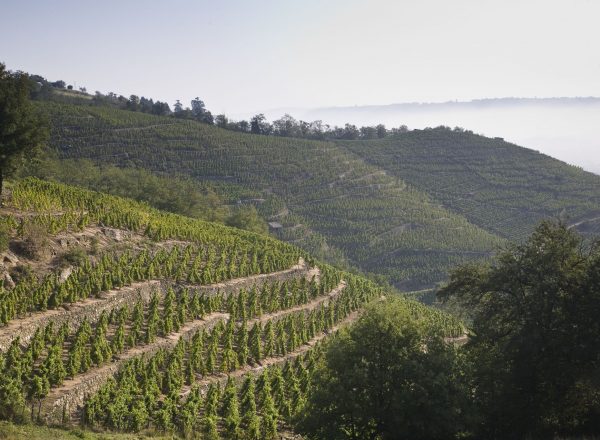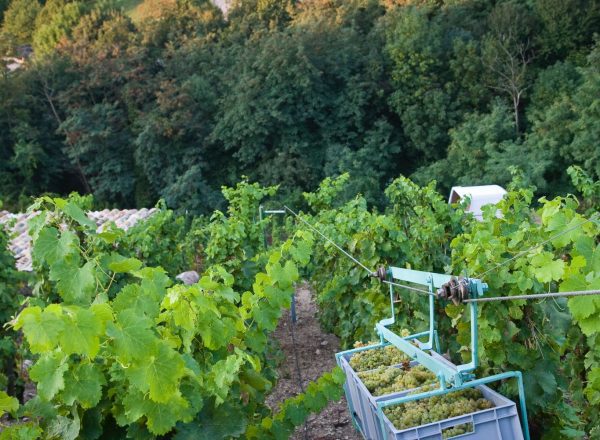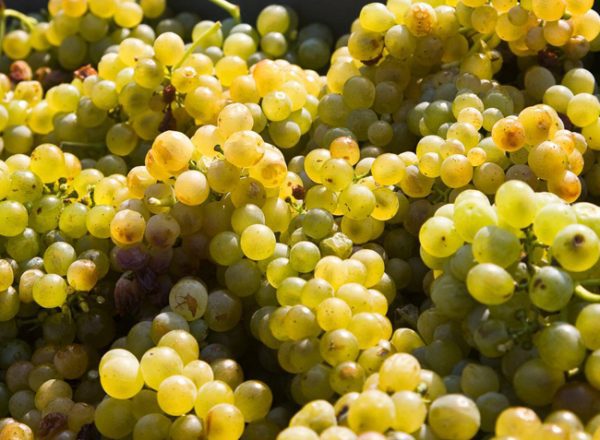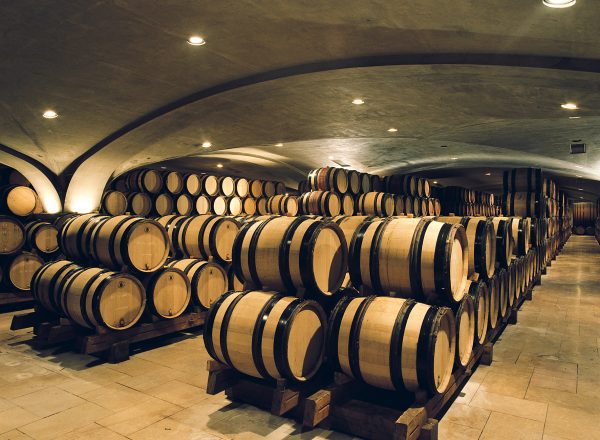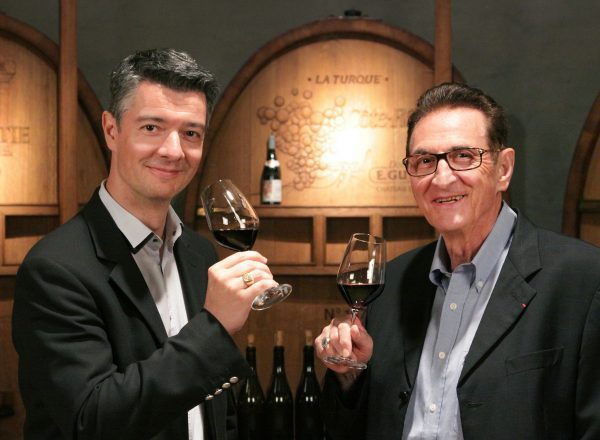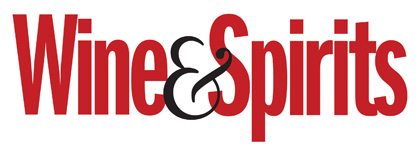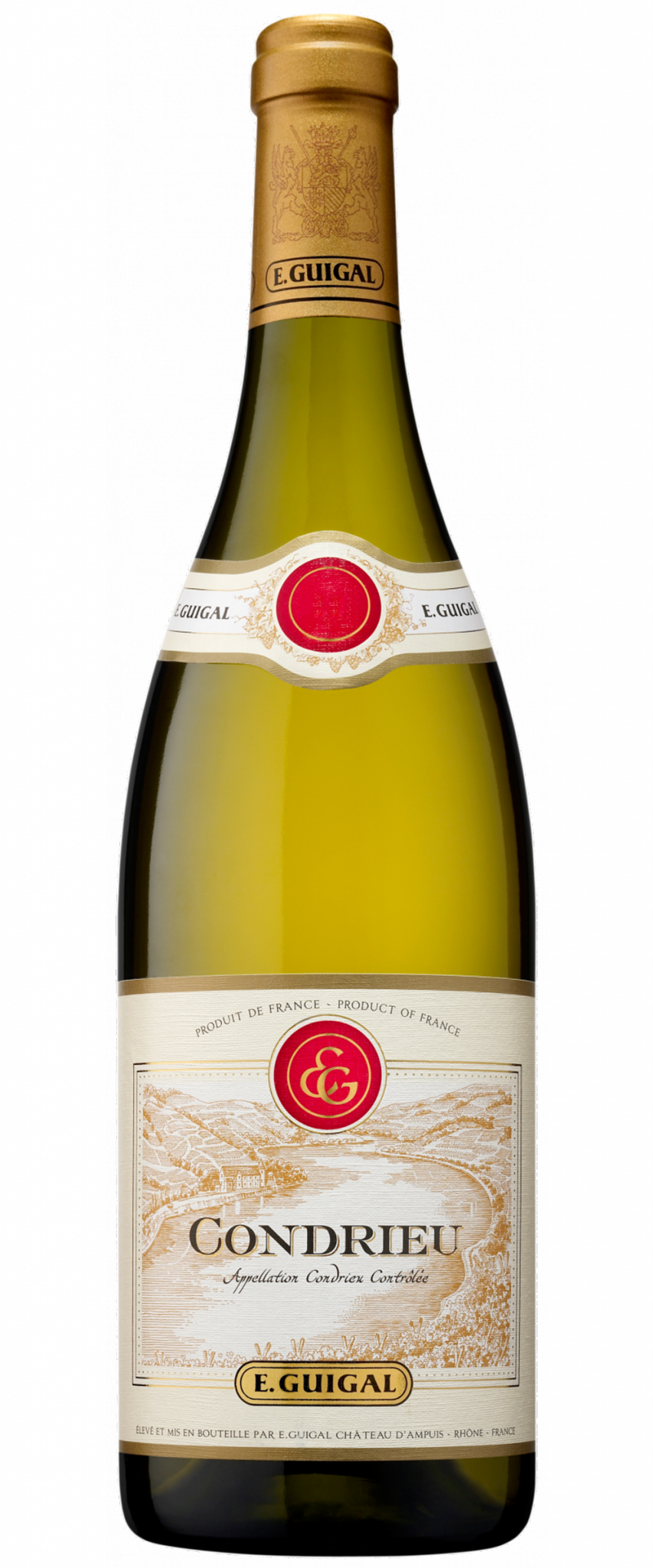
E. Guigal
Condrieu 2022
Condrieu
Condrieu is one of the most exotic and distinctive wines in the world, with its intense aromatics and flavors of apricots, white peach and citrus, and its luscious, almost umami body. It happens to come from a dramatically steep area, and one so small that were it not for several influential people, Marcel Guigal among them, the appellation and its Viognier grape would have been swallowed by history.
Vineyard
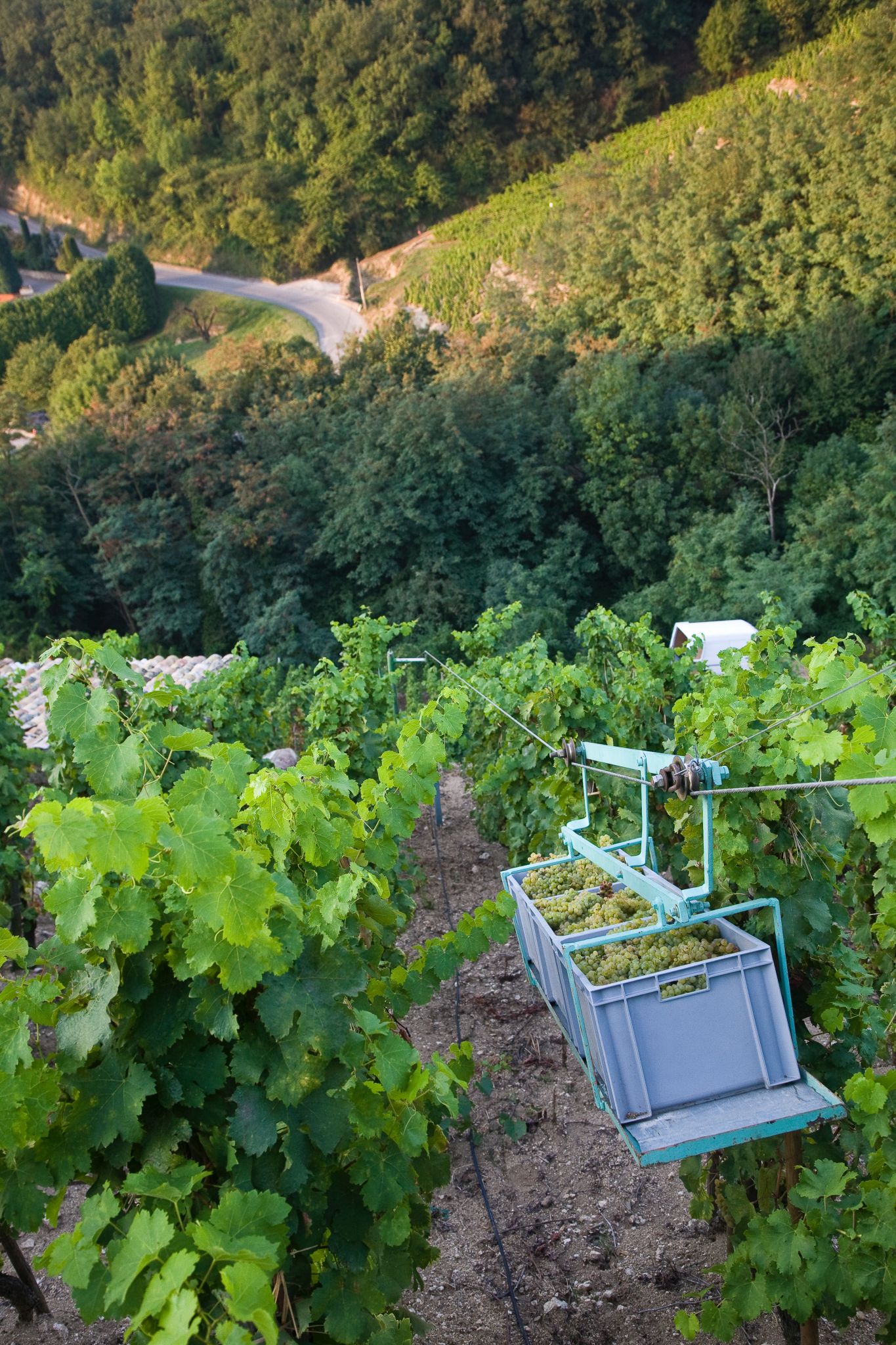
The tiny, parcelated appellation (500 acres total) is located on steep granite hillsides beginning at a bend in the Rhône river just south of Côte Rôtie and continuing intermittently about 12 miles further south. The granite hillsides have sand intermixed in their soils, and the vines for this wine average around 30 years of age, and only produce around 2.4 tons of fruit per acre.
Winemaking
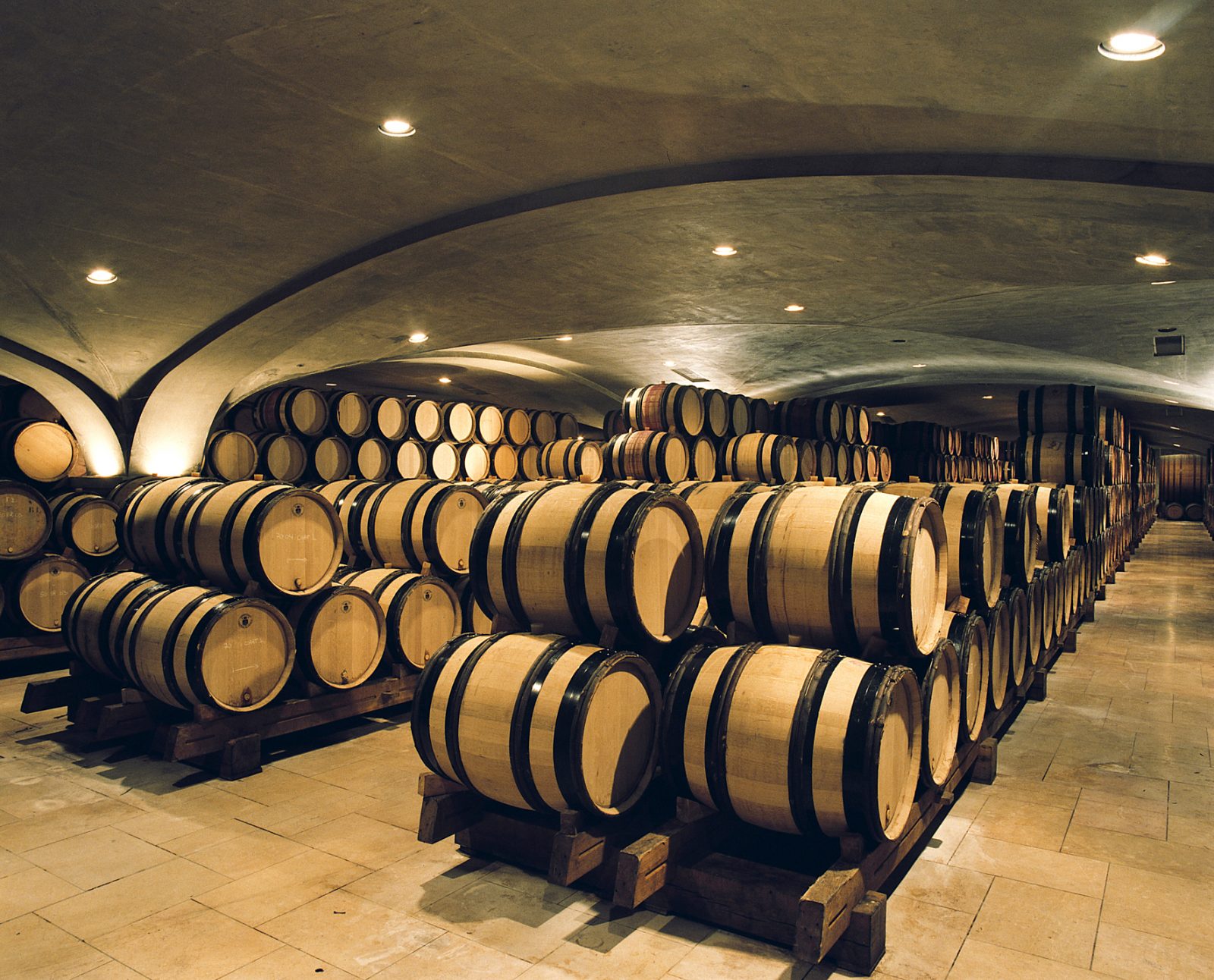
After hand harvesting and sorting, 1/3 of the wine was fermented in new barrels, which it aged in for 8 months. The rest was fermented and aged in stainless steel. The wine underwent malolactic fermentation.
Vintage
2022 vintage was marked by an early harvest. Small berry size with some shriveled clusters resulted in lower yields. Swift harvesting took place in scorching, dry conditions.
Tasting Note
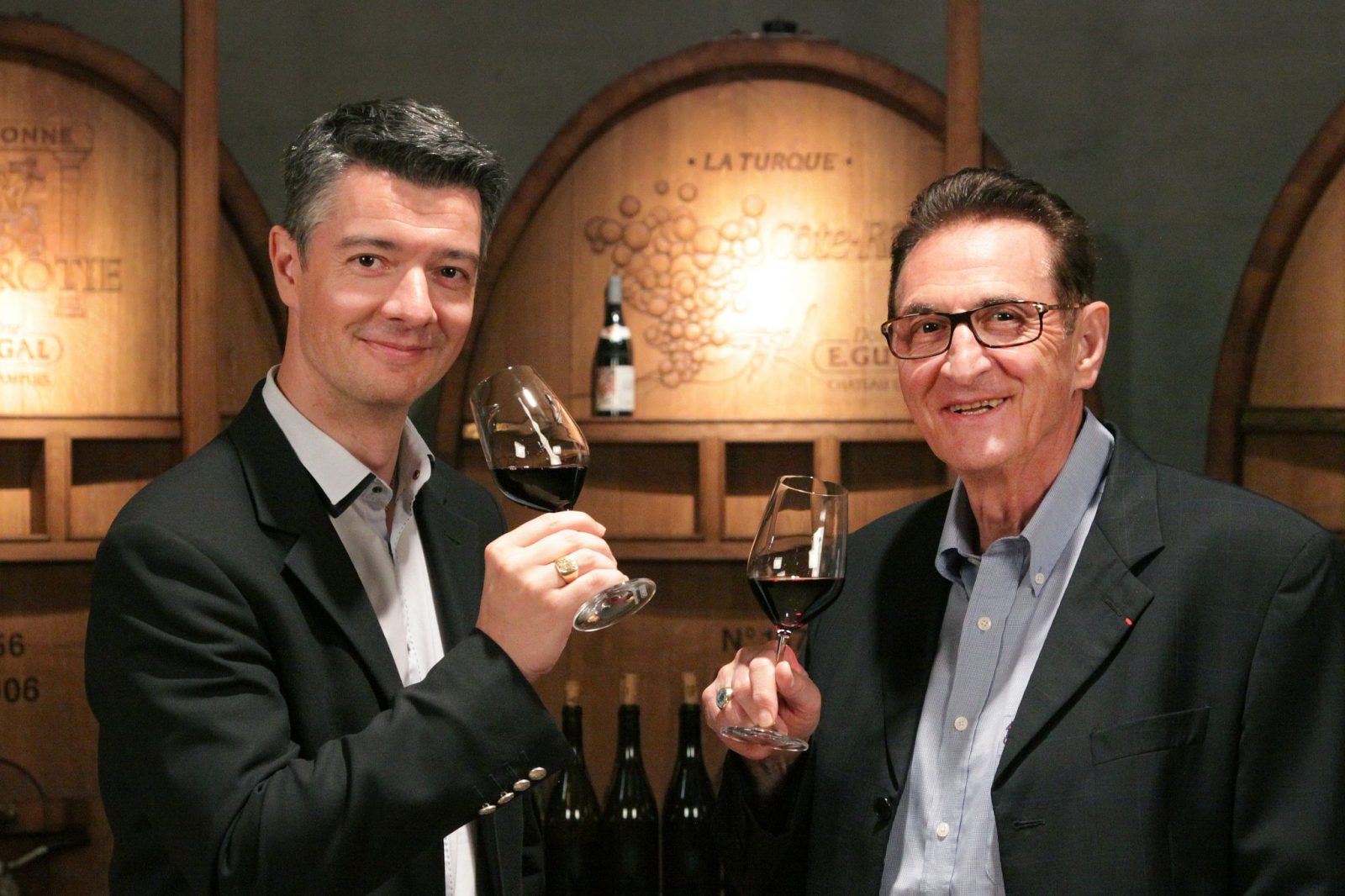
Brilliant pale gold. The perfume (you can only call it that) has intense notes of violets, apricot, white peach, and citrus. Fresh and round on the palate, you feel the fat, the richness, yet the wine is so intensely dry and mineral. A harmony between freshness and fleshy roundness. A remarkable minerality.
Color
White
Appellation
Condrieu
Alcohol
14.5%
Suggested Retail Price
$80.00
Reviews
Reviews
More on E. Guigal Condrieu 2022
Philippe Guigal, E. Guigal- A Storied Rhône Valley Family Producer
January 30, 2024 - The popular podcast, The Connected Table, features E. Guigal’s very own Philippe Guigal in its most recent episode on December 12, 2024, as well as its popular email newsletter. The…
Trade Materials
Other Wines by this Producer
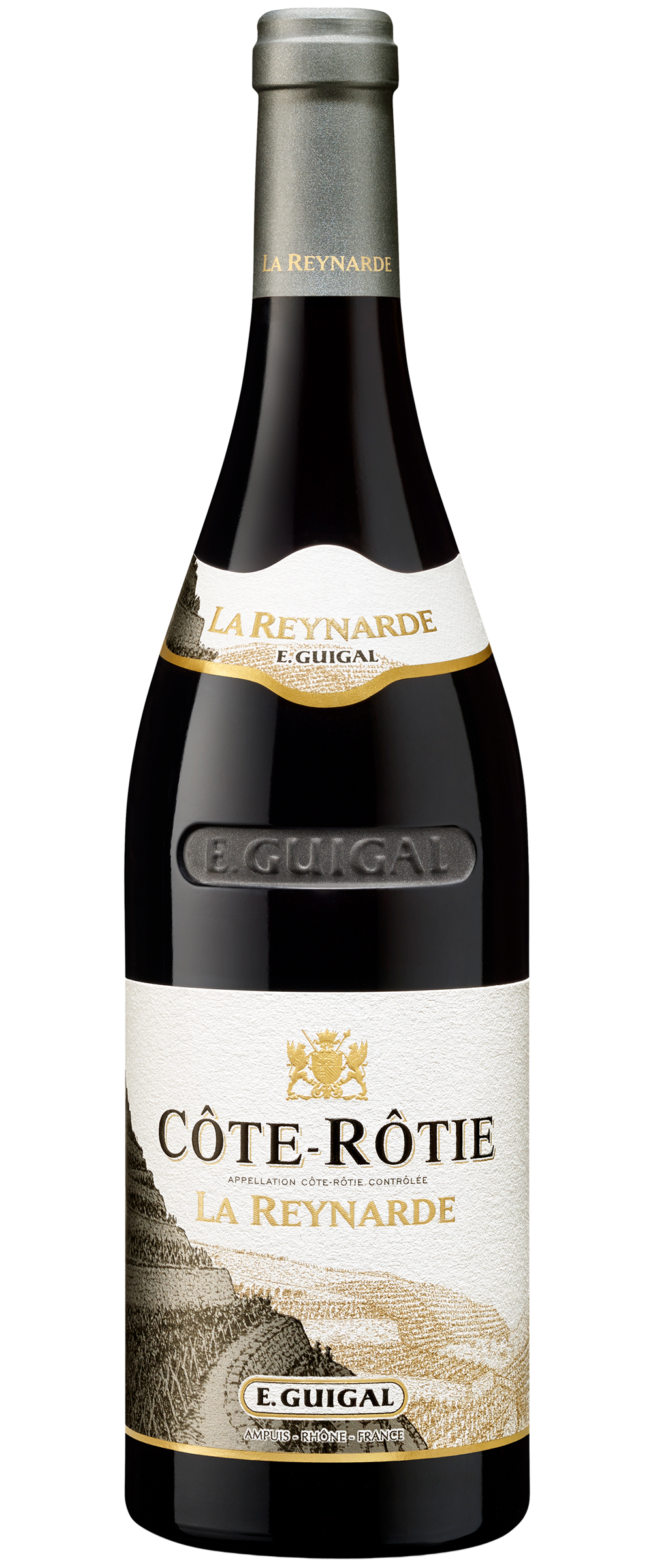
Côte-Rôtie La Reynarde
Côte-Rôtie
From a steep Côte Brune vineyard planted in 2010 to honor the birth of Philippe Guigal’s twin sons, La Reynarde is 100% Syrah grown on granite, schist and iron-rich clay. In style, it sits between La Turque and La Landonne, showing a lifted and exotic floral character that differentiates it from the other LaLa’s, with a superbly precise density and length.
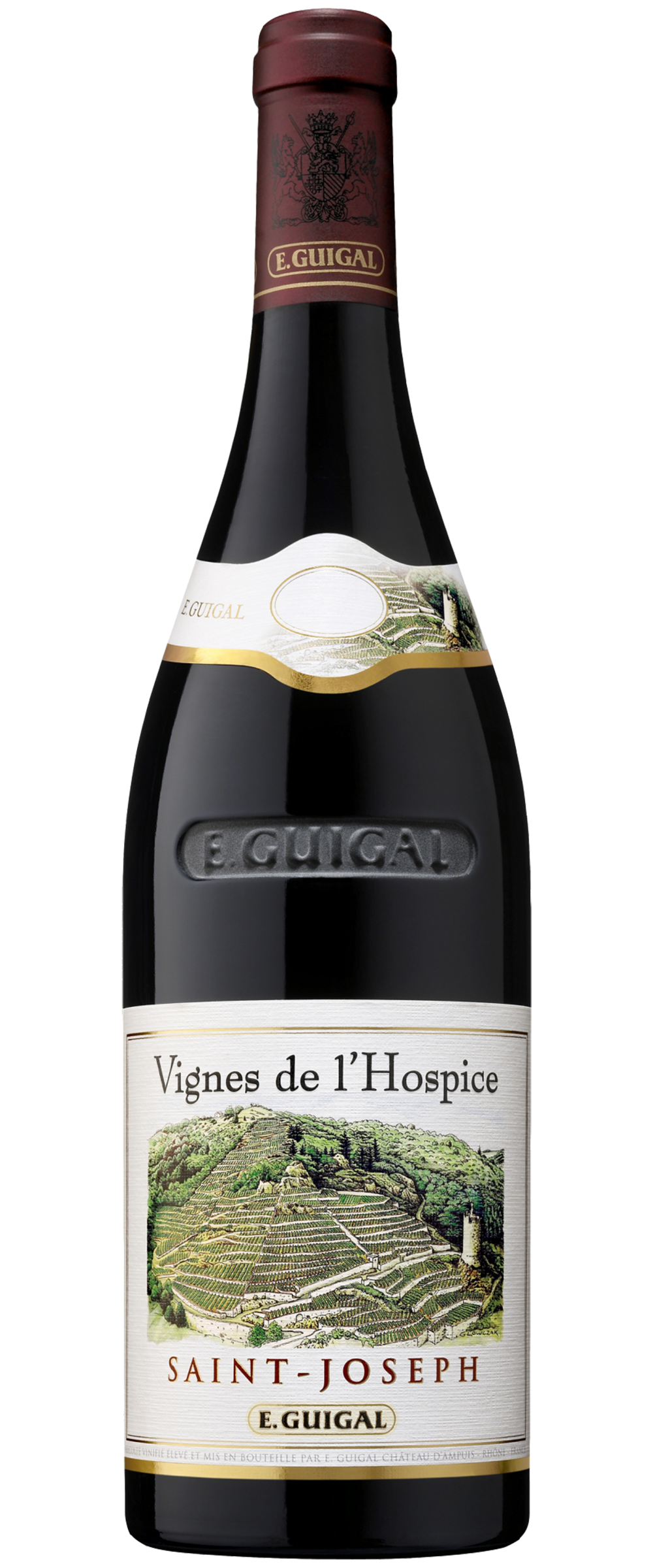
Saint Joseph Vignes de l’Hospice
Saint-Joseph
Guigal’s Vignes de l’Hospice is one of the finest sites in the Northern Rhone Valley. This steeply terraced vineyard used to be divided into three, but Guigal now owns majority of this parcel in order to restore perception of Saint-Joseph as an appellation of utmost quality. In fact, Guigal is often asked when they will produce a fourth “LaLa,” and their response is that their fourth single vineyard phenomenon of the Northern Rhone is already being produced: the Vignes de l’Hospice.
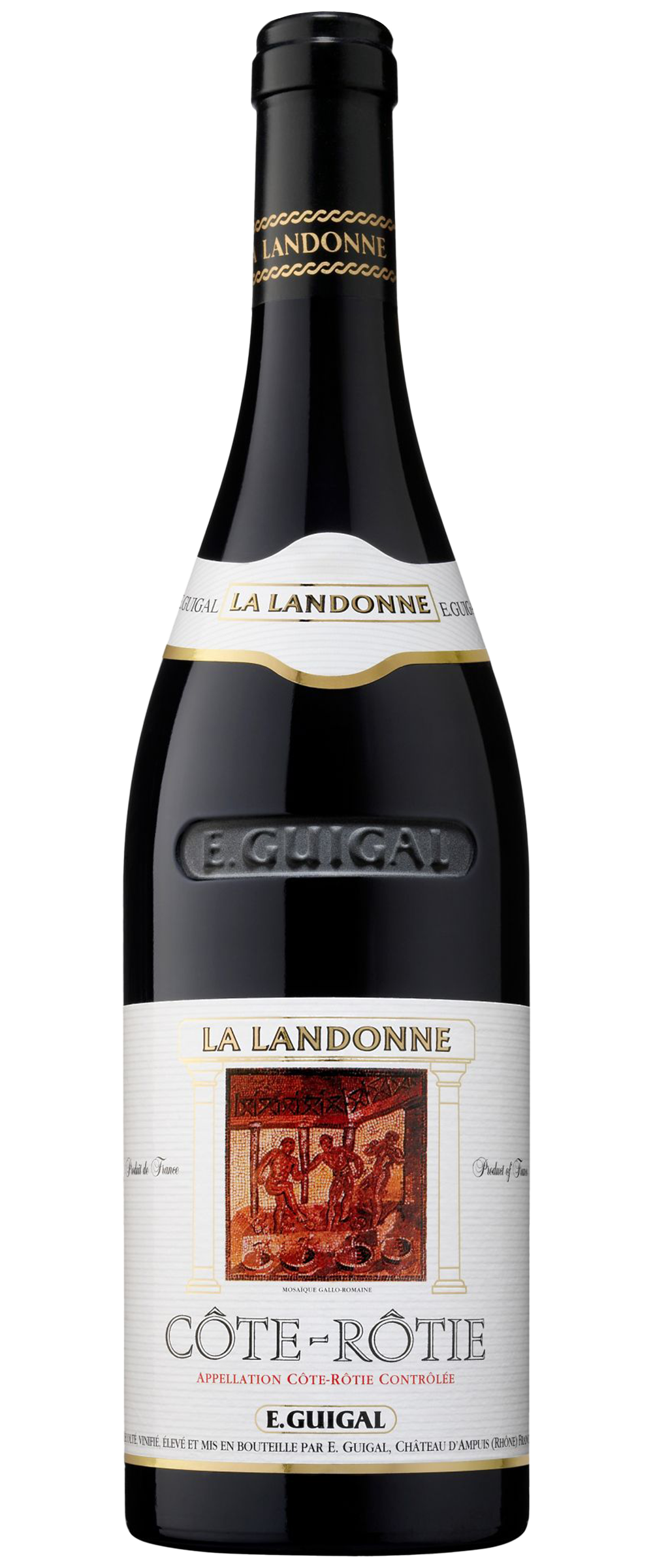
Côte-Rôtie La Landonne
Côte-Rôtie
One of the three “LaLa” wines that Guigal produces and are the most collectible wines of the Rhone Valley, La Landonne is a remarkable expression of terroir. And for good reason, La Landonne is situated on one of the steepest vineyards of the Côte Brune, a 45 degree slope that remarkably requires harvesters to start picking from the bottom of the vineyard and work their way up, placing grape bunches in bins that are set on sleds and dragged up the hill. Along with its position at the northern end of the Côte Brune and the fact it is the last vineyard to ripen, La Landonne is the mirror of the feminine and voluptuous La Mouline: it is a wine of driving power, defined by its dark fruit and structure. The first vintage Guigal produced was in 1978, after being planted in 1975 at the time of Philippe Guigal’s birth.
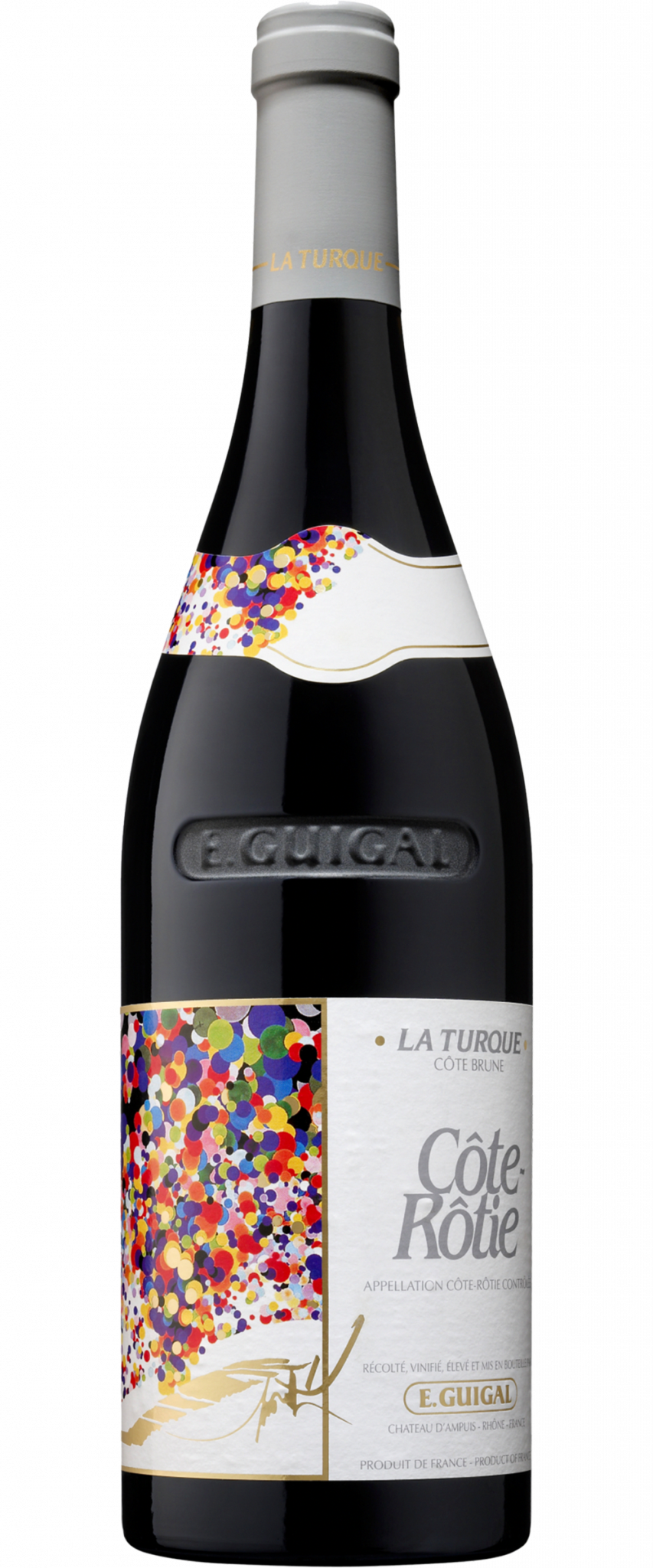
Côte-Rôtie La Turque
Côte-Rôtie
Of the three famous single-vineyard “LaLas” that Guigal produces and are the most collectible wines of the Rhone Valley, La Turque is the newest. This vineyard produced outstanding wines in the first half of the 20th century, but then was not used for wine production for nearly 50 years. The Guigals acquired the vineyard and re-planted it in 1980 and 1981, based on Etienne Guigal’s memory of the quality of the wines it once produced. The first vintage appeared in 1985. In both position and style, it sits between La Mouline and La Landonne: the complex soils lend an exotic character to La Turque, and its concentration and elegance exhibit the virility of the Côte Brune with the subtlety and femininity of the Côte Blonde.
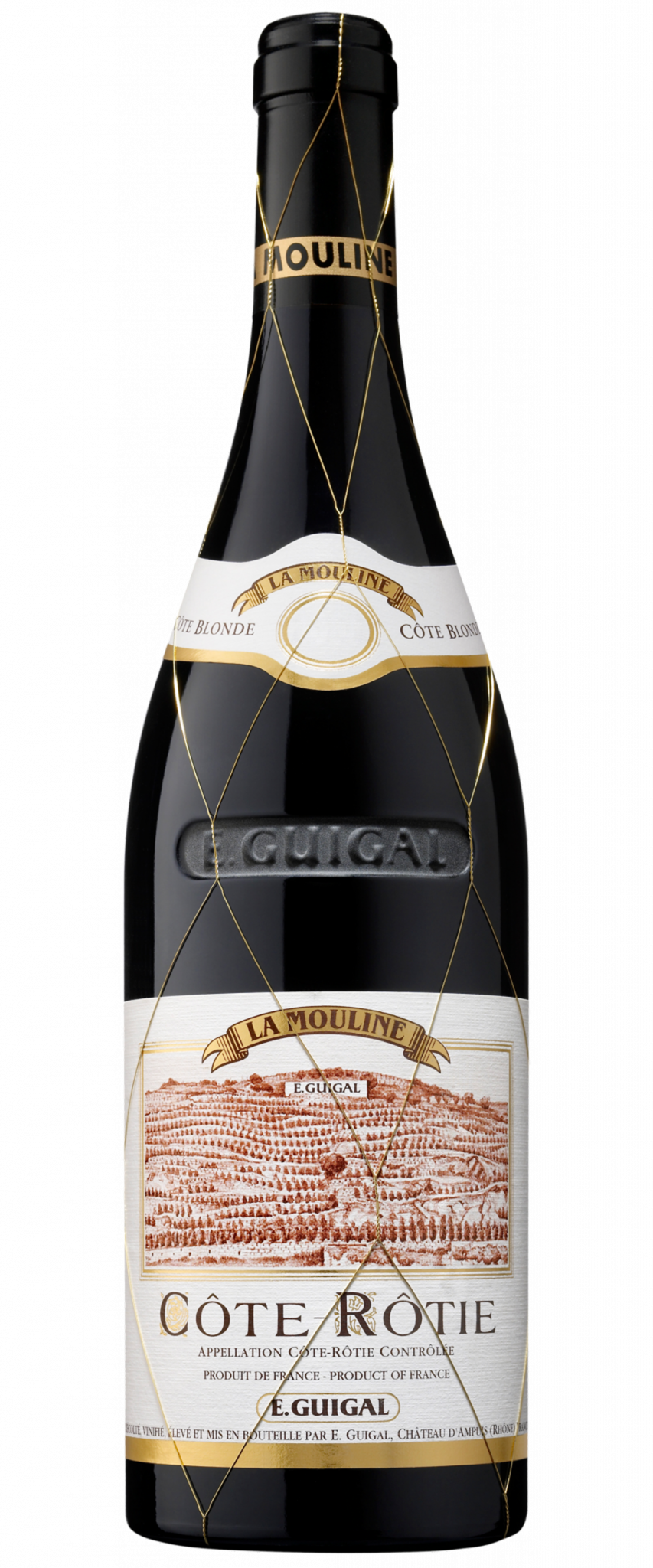
Côte-Rôtie La Mouline
Côte-Rôtie
First planted by the Romans 2,500 years ago, La Mouline is the oldest and most famous vineyard of Cote-Rotie, and Guigal’s single vineyard bottling of La Mouline in the 1960s set off a quality revolution throughout the Rhone Valley. The stunning amphitheater is the most complex plot in Cote-Rotie due to its extremely steep slopes with expositions in every direction. Of the three famous “LaLas” that Guigal produces and are the most collectible wines of the Rhone Valley, La Mouline was the first and is the only one on the Cote Blonde, and its signature is an unbelievable exoticism, an irresistibly and unique lifted floral, black fruit, earthy, spicy perfume, its coiled power always in balance, seemingly endless.
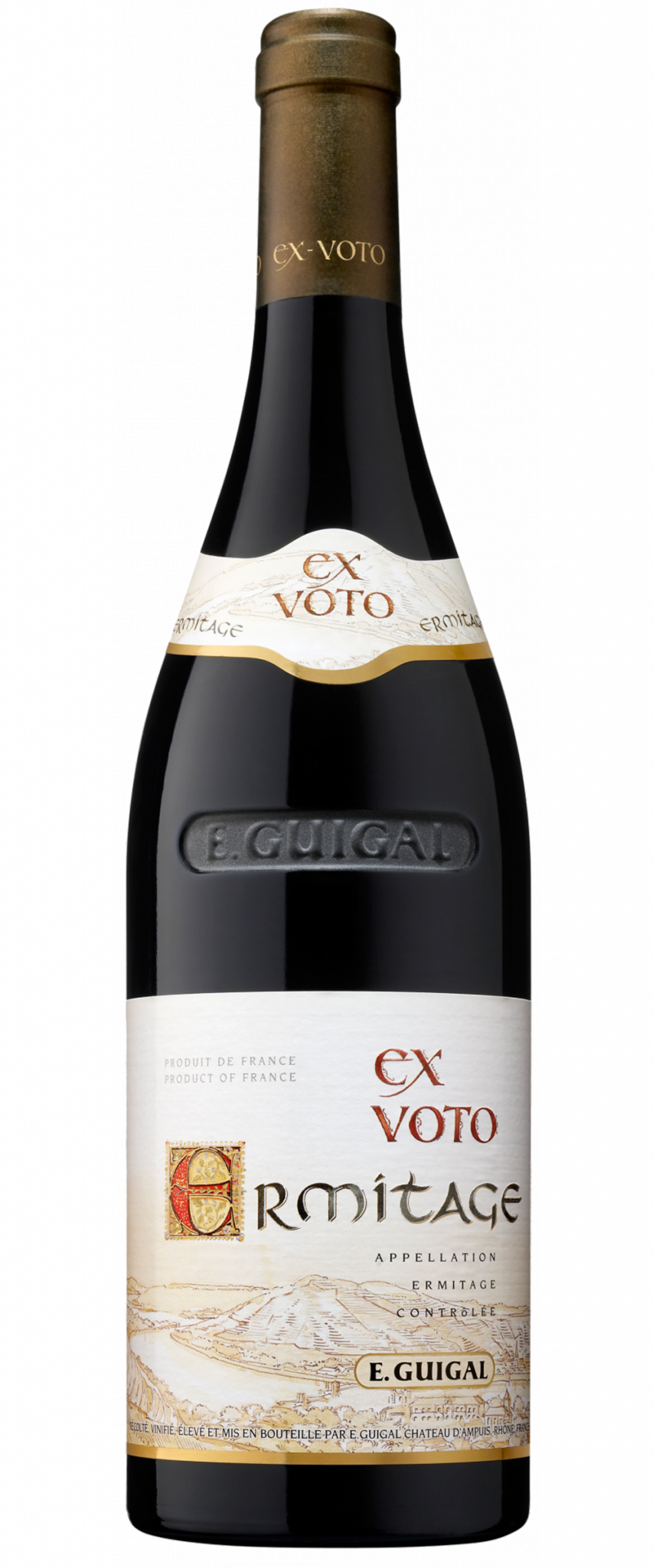
Ermitage Ex Voto Rouge
Hermitage
Ermitage Ex-Voto represents the fulfillment of a longtime dream of Marcel Guigal’s to own vineyard land on the hill of Hermitage. Through the purchase of the de Vallouit and J. L. Grippat domaines in 2000, Guigal acquired four exceptional vineyard parcels on this legendary site. The 2001 vintage was the first release of this estate-bottled Hermitage red and white. The quality of the intense old-vine fruit is quite special, but given the Guigal’s already strong work in Hermitage, they decided to only release an Ex-Voto red or white when the wine is utterly exceptional and clearly superior to their appellation bottlings.
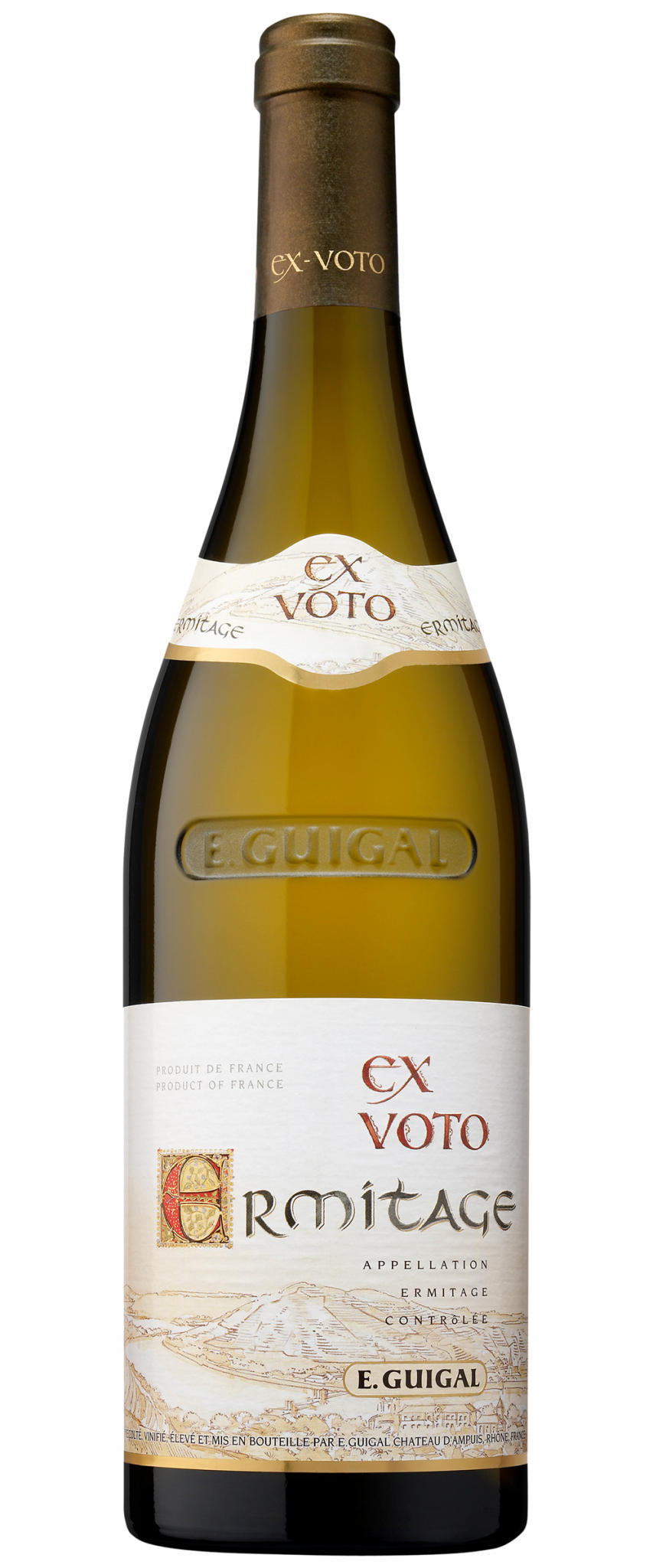
Ermitage Ex Voto Blanc
Hermitage
Ermitage Ex-Voto represents the fulfillment of a longtime dream of Marcel Guigal’s to own vineyard land on the hill of Hermitage. Through the purchase of the de Vallouit and J. L. Grippat domaines in 2000, Guigal acquired four exceptional vineyard parcels on this legendary site. The 2001 vintage was the first release of this estate-bottled Hermitage red and white. The quality of the intense old-vine fruit is quite special, but given the Guigal’s already strong work in Hermitage, they decided to only release an Ex-Voto red or white when the wine is utterly exceptional and clearly superior to their appellation bottlings.
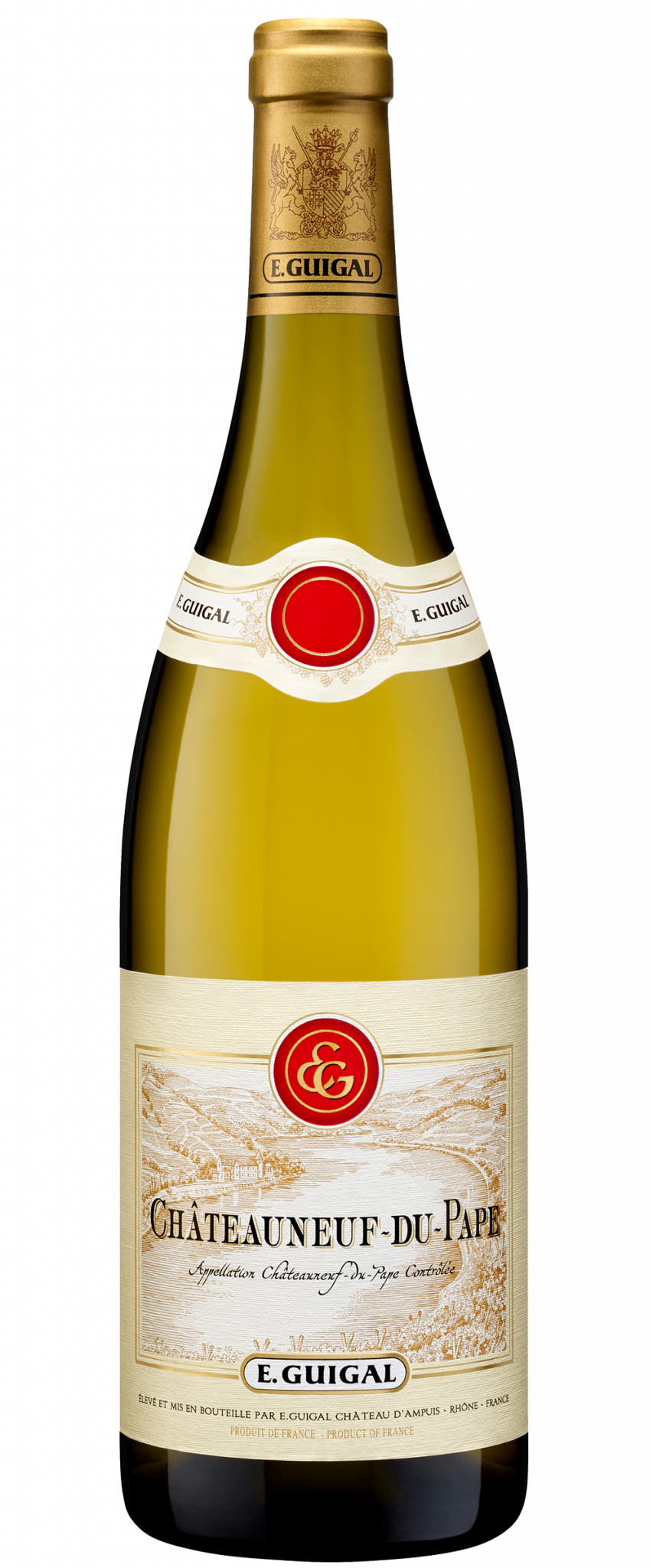
Châteauneuf-du-Pape Blanc
Châteauneuf-du-Pape
Guigal produces an intensely concentrated, inviting and complex Châteauneuf-du-Pape that is almost unique to the region today. Their passion for Châteauneuf, the leading appellation of the Southern Rhône, runs as deeply as that for their home sites in the Northern Rhône. The combination of working with top fruit that has perfect ripeness, along with their extraordinary patience in the cellar, results in rich and full, yet savory, spicy, seamless and balanced wines. Wines to enjoy immediately but capable of aging, and, above all, wines that leave you wanting more.
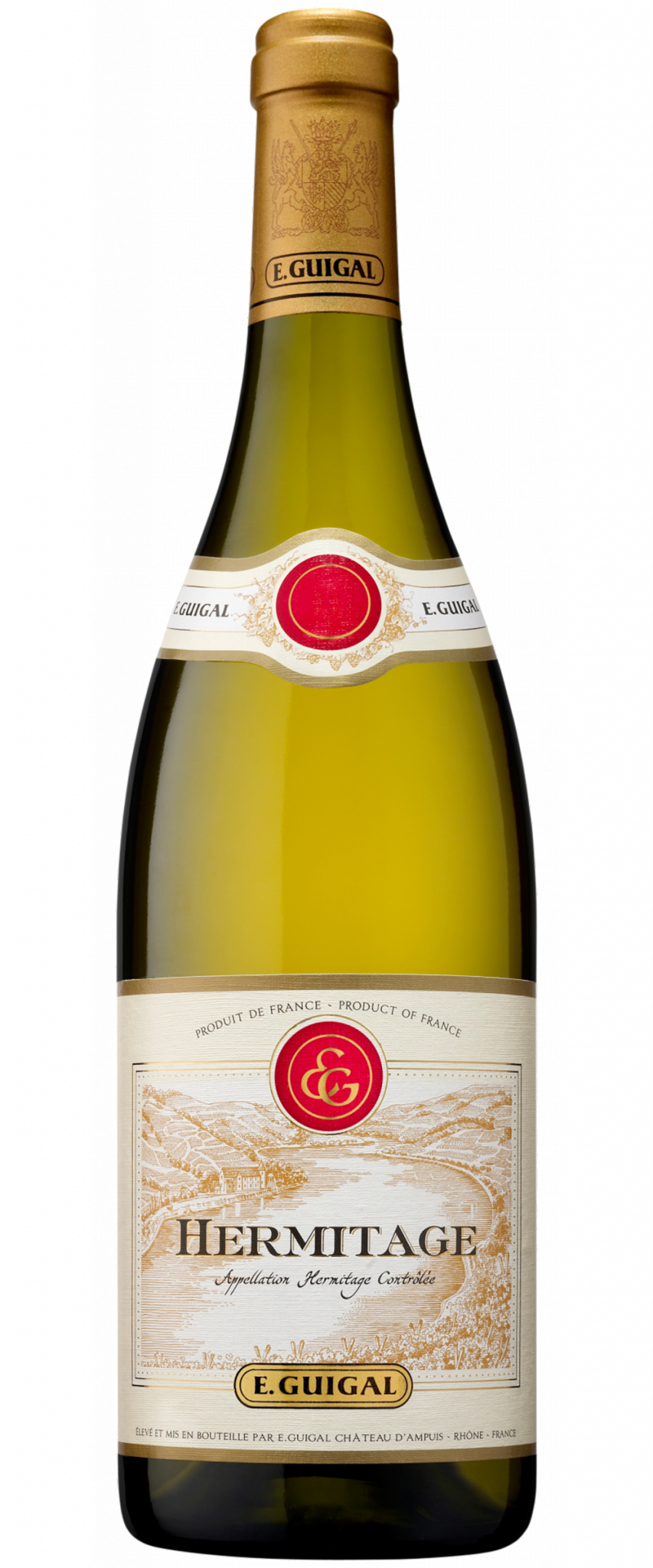
Hermitage Blanc
Hermitage
Whites make up a small percentage of production in the Rhône, under 2%, but white wines are a little bit of a secret specialty at Guigal and today comprise 25% of their production. And for good reason, as the whites of the Northern Rhône are true discovery wines, immensely appealing and complex. They specifically display an expressiveness and brightness while also capturing the warmth of the area. Even more of a discovery is Hermitage Blanc, one of the least-known yet most intriguing wines of the Rhône Valley and in the small 309 acre Hermitage AOC.
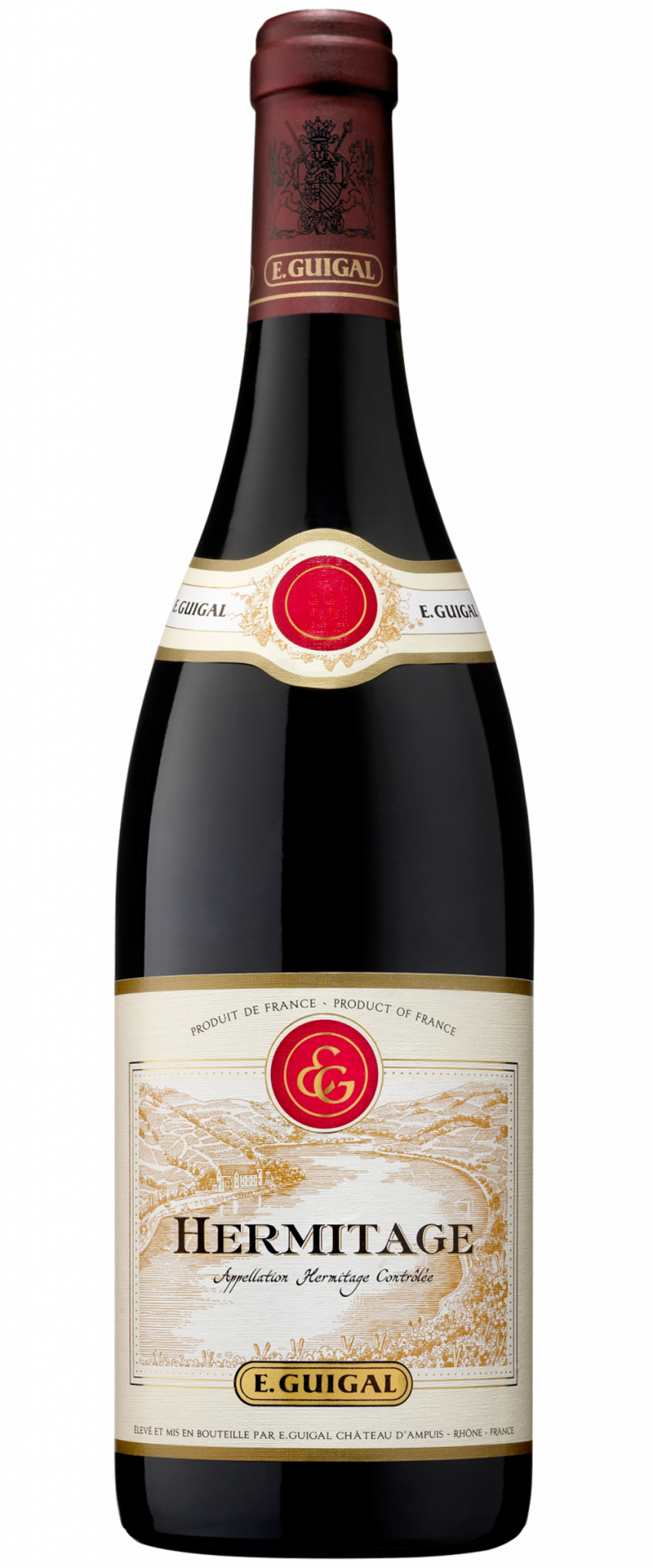
Hermitage
Hermitage
Hermitage is one of France’s most spectacular and famous appellations, producing small quantities of extraordinarily intense and ageworthy red wine and tiny amounts of dry white. The entire vineyard consists of 309 acres planted on a single granite hillside on the banks of the Rhône. The Hermitage Rouge is the example of a racy wine, that manages to remain seductive.
